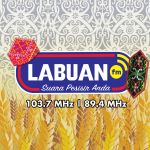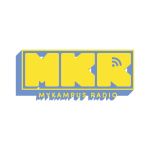Radio DJs in Malaysia are the dynamic voices behind the airwaves, entertaining 20.2 million weekly listeners (95% of Peninsular Malaysia’s population) with music, news, and engaging discussions, according to the 2024 GfK Radio Audience Measurement survey. Stations like Hitz FM, ERA, and THR Raaga rely on charismatic DJs to connect with diverse audiences in Malay, English, Chinese, and Tamil. Becoming a radio DJ in Malaysia is a competitive but rewarding career path that blends creativity, technical skills, and audience engagement. This blog post outlines the steps to become a radio DJ in Malaysia, covering education, experience, skills, and practical tips to break into the industry in 2025.
Quick Answer
To become a radio DJ in Malaysia, gain a bachelor’s degree in communications, broadcasting, or journalism (optional but advantageous), build experience through internships or volunteering at college/community stations, develop a strong on-air personality, and create a demo reel showcasing your voice and style. Network with industry professionals, apply for entry-level roles at stations like Astro Radio or BFM 89.9, and leverage social media to build a following. Salaries range from RM56,251 annually for beginners to RM94,536 for experienced DJs, with top earners reaching RM100,000 monthly at private stations.
Step-by-Step Guide to Becoming a Radio DJ in Malaysia
1. Understand the Role of a Radio DJ
Radio DJs in Malaysia, also called radio presenters or announcers, play music, host talk shows, conduct interviews, and provide updates on news, traffic, or weather. They work for broadcast, satellite, or internet stations like ERA (4.8 million listeners), Hitz FM (2.2 million), or BFM 89.9, often specializing in genres like pop, rock, or Tamil music. Responsibilities include:
- Curating Content: Selecting music (often from playlists set by program directors) and discussing pop culture, current events, or music trends.
- Engaging Audiences: Interacting with listeners via calls, social media, or contests, fostering a relatable persona, as emphasized by DJ Wendy Wild’s advice to “feel like a friend to listeners.”
- Technical Tasks: Operating studio equipment, managing playlists, and ensuring smooth broadcasts.
- Public Appearances: Representing stations at events or promotional activities.
DJs often work odd hours, including early mornings (6 AM–10 AM) or late nights, with schedules varying by station (e.g., Astro Radio vs. RTM’s Minnal FM).
2. Develop the Necessary Skills
Successful radio DJs need a blend of interpersonal, technical, and creative skills:
- Interpersonal Skills: Engage listeners, co-hosts, and guests with charisma and relatability. Build a connection to make audiences feel “understood and entertained,” as noted by Indeed.
- Public Speaking: Speak clearly with good diction, pronunciation, and confidence, essential for Malaysia’s multilingual audience (Malay, English, Tamil, or Chinese). Knowledge of a language like Tamil for THR Raaga or Mandarin for MY FM is a plus.
- Music Knowledge: Understand genres, artists, and trends, especially for specialized stations (e.g., J-pop for MY FM or business talk for BFM).
- Technical Proficiency: Operate broadcasting equipment, audio software, and adhere to MCMC guidelines (similar to FCC rules in the U.S.).
- Resilience and Multitasking: Stay calm under pressure, handle live mishaps, and juggle tasks like reading scripts and managing calls, as highlighted by RadioKing.
- Research Skills: Prepare content on music, news, or pop culture to fill airtime, as noted by Soundplate.
High school students can start by joining debate clubs, theater, or music classes to hone pronunciation and performance skills.
3. Pursue Relevant Education
While no formal education is mandatory, a bachelor’s degree in communications, broadcasting, journalism, or media studies gives a competitive edge, especially at large stations like Astro Radio. About 57% of DJs hold a bachelor’s degree, per Salary Expert. Relevant programs include:
- Courses: Public speaking, media law, audio production, and broadcast journalism. Universities like Universiti Malaya, Universiti Sains Malaysia, or Taylor’s University offer communications degrees with radio-related modules.
- Short Courses: Institutions like the International College of Music (ICOM) in Kuala Lumpur provide certificate programs in audio production, covering studio equipment and editing software.
- Language Skills: For stations like THR Raaga or Minnal FM, proficiency in Tamil is essential, while MY FM requires Mandarin. English fluency is key for Hitz FM or BFM 89.9.
High school radio clubs or community stations like those in Selangor or Kuala Lumpur offer early exposure.
4. Gain Hands-On Experience
Experience is critical in Malaysia’s competitive radio industry:
- College Radio: Universities like Universiti Kebangsaan Malaysia (UKM) or Monash University Malaysia may have campus stations where students can practice as DJs or producers.
- Internships: Apply for internships at stations like Astro Radio, BFM 89.9, or RTM. These provide insights into broadcasting, equipment use, and audience engagement. Contact stations via email (e.g., enquiry@astroradio.com.my) or check job boards like Soundplate Jobs.
- Community/Online Radio: Volunteer at local stations like Bernama Radio or start an online radio show/podcast via platforms like RadioKing to build skills and a listener base. Posts on X highlight opportunities like the 2025 Radio Presenter Course by WLRFM for real-world experience.
- Smaller Markets: Start at regional stations like Perlis FM or Kelantan FM to develop your on-air persona before targeting major stations in Kuala Lumpur.
5. Create a Demo Reel
A demo reel is essential for showcasing your voice, style, and personality to potential employers:
- Content: Include music introductions, mock interviews, and commentary on news or pop culture (2–5 minutes). Highlight your ability to engage Malaysia’s diverse audience (e.g., Malay, Tamil, or English segments).
- Quality: Record using a high-quality microphone and editing software like Audacity. Avoid background noise and ensure clear diction.
- Tailoring: Customize reels for specific stations (e.g., upbeat for Hitz FM, professional for BFM). Submit with a resume via station websites or LinkedIn.
6. Network and Build a Brand
Networking is key in Malaysia’s radio industry:
- Industry Connections: Attend events like BFM’s Brandfest or Astro Radio’s concerts to meet producers and DJs. Follow stations on LinkedIn or X for job openings.
- Social Media Presence: Build a following on platforms like Instagram or TikTok to showcase your personality and music knowledge. THR Raaga, for instance, has 347,000 Instagram followers, showing the importance of digital engagement.
- Collaborations: Work with local artists or podcasters to gain visibility, as suggested by ZIPDJ.
7. Apply for Radio DJ Jobs
- Entry-Level Roles: Start as a production assistant or part-time DJ at smaller stations. Check job boards like JobStreet Malaysia or contact stations directly (e.g., enquiry@bfm.my).
- Major Stations: Astro Radio (ERA, Hitz FM, MY FM), BFM 89.9, or RTM (Minnal FM) hire based on experience and reels. Astro Radio dominates with 14.9 million listeners, offering more opportunities but higher competition.
- Freelance Gigs: Host events or produce podcasts to gain experience while applying for full-time roles.
8. Stay Resilient and Adaptable
The radio industry is competitive, with a projected -4% job growth globally from 2018–2028 due to digital competition, per Zippia. In Malaysia, radio’s 95% reach ensures demand, but DJs must adapt to trends like podcasting and social media. Develop resilience to handle criticism and irregular hours, as advised by RadioKing.
Salary Expectations

- Entry-Level: RM56,251 annually (RM4,688 monthly).
- Average: RM76,608 annually (RM6,384 monthly, RM37/hour).
- Senior-Level: RM94,536 annually (RM7,878 monthly).
- Top Earners: High-profile DJs at private stations like ERA or MY FM can earn RM100,000–RM150,000 monthly, with additional income from events or endorsements.
- RTM DJs: Government stations pay RM2,500–RM7,000 monthly, aligned with civil service scales.
Challenges and Opportunities
- Challenges: High competition, irregular hours (early mornings or late nights), and pressure to maintain ratings. Contract terminations can be abrupt, requiring careful review of terms.
- Opportunities: Malaysia’s radio market remains robust, with 7.2 million listeners engaging via social media. Digital platforms like SYOK and RTMKlik offer new avenues for DJs to shine.
Conclusion
Becoming a radio DJ in Malaysia requires a mix of education, hands-on experience, and a magnetic personality to captivate 20.2 million listeners. Start with a degree in communications or media (optional), gain experience through internships or community radio, and create a compelling demo reel. Network at industry events, build a social media presence, and apply to stations like Astro Radio or BFM 89.9. With salaries ranging from RM56,251 to RM94,536 annually (and up to RM150,000 monthly for top DJs), persistence and adaptability can lead to a rewarding career in Malaysia’s vibrant radio industry. Stay passionate, hone your skills, and connect with listeners to make your mark on the airwaves.







